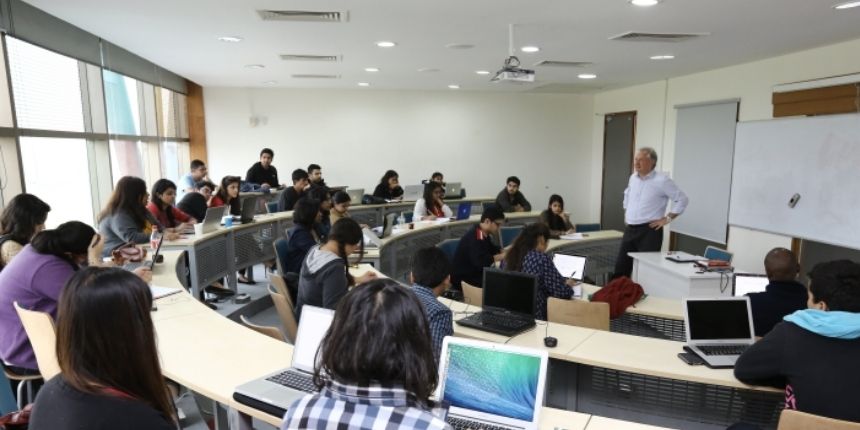90% of India's students go to colleges where there is little research: Center's Scientific Advisor
Press Trust of India | September 18, 2021 | 12:19 PM IST | 2 mins read
If all agencies partner, the national lab network of resources can be available both to the industry and to these colleges and universities, Principal Scientific Advisor to Centre K Vijay Ragahvan suggested.

New Delhi: Ninety per cent of India's students go to colleges and universities where there is little research, which has to be rectified, Principal Scientific Advisor to Centre K VijayRagahvan said Friday.
Addressing the CII Lifesciences Conclave, he stressed the need for the industry and science agencies to work together. VijayRagahvan noted that the COVID-19 pandemic has brought science agencies together in an extraordinary manner. He said the country's research ecosystem has a robust spread-out -- the Department of Biotechnology, Indian Council for Medical Research (ICMR), Indian Council for Agriculture Research (ICAR), Department of Science Technology, Council for Scientific and Industrial Research (CSIR), Department of Atomic Energy (DAE) -- which is "absolutely mind-boggling".
These institutes have an enormous intellectual, material and other infrastructure resources and these capabilities have to be leveraged, he noted. Similarly, there are nearly 70-75 central universities and hundreds of state and private universities across the country.
"Ninety per cent of the research support goes to those laboratories where 10 per cent of our students go. Ninety per cent of our students go to universities/colleges where there is little research. "Yet, they are literally just a stone's throw away from the best places of research and this is something that has to be rectified," the official said.
If all agencies partner, the national lab network of resources can be available both to the industry and to these colleges and universities, VijayRaghavan suggested. Other countries are also trying this, but they will not be trying it on the scale that is possible in India because of its population and network of laboratories which can be connected, he said.
"This is something we must embark on," he stressed. The Principal Scientific Adviser (PSA) also added the bondage of unnecessary multiple kinds of regulations needs to go. Reform in the space of academia and industry, regulation, university and research - all these are constant processes, he added. Talking about the collaboration between industry and the country's science agencies during the pandemic, VijayRaghavan said now as the pandemic declines “we cannot go back to our old ways. Our science and industry must walk in step together”.
Department of Biotechnology Secretary Renu Swarup said India will not just be the pharmacy of the world but also the research lab of the world. There is a need to create an industry strategised research partnership platform. The bio-strategy document is in place that will lead India to become a USD 150 billion market by 2025, she said.
"We now need to focus on ways to encourage new IP (Intellectual Property) generation and new innovative research, this will require industry collaborations with both academia and startups. "Our focus should be on achieving scalability that is matched with sustainability, and we will have at least 10,000 startups in the next five years," she said.
Write to us at news@careers360.com.
Follow us for the latest education news on colleges and universities, admission, courses, exams, research, education policies, study abroad and more..
To get in touch, write to us at news@careers360.com.